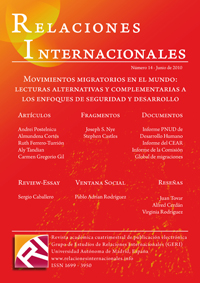Keywords:
social theory , social transformation , socio-apatial levels , agency, structure , Migration theoryCopyright (c) 2010 Stephen CASTLES

This work is licensed under a Creative Commons Attribution-NonCommercial-NoDerivatives 4.0 International License.
Abstract
This article aims to examine some of the difficulties of theory formation in international migration studies, and to suggest a response. The starting point is an examination of the dominant perception of ‘migration as a problem’. This is followed by a discussion of some key obstacles to theoretical advancement in migration studies. I argue that a general theory of migration is neither possible nor desirable, but that we can make significant progress by re-embedding migration research in a more general understanding of contemporary society, and linking it to broader theories of social change across a range of social scientific disciplines. A conceptual framework for migration studies should take social transformation as its central category, in order to facilitate understanding of the complexity, interconnectedness, variability, contexuality and multi-level mediations of migratory processes in the context of rapid global change. This would mean examining the links between social transformation and human mobility across a range of sociospatial levels, while always seeking to understand how human agency can condition responses to structural factors. The argument is illustrated through the example of the changing dynamics of labour.





